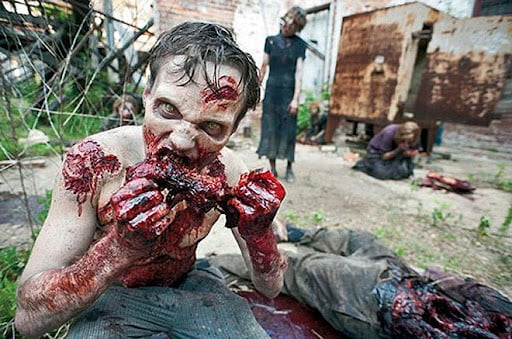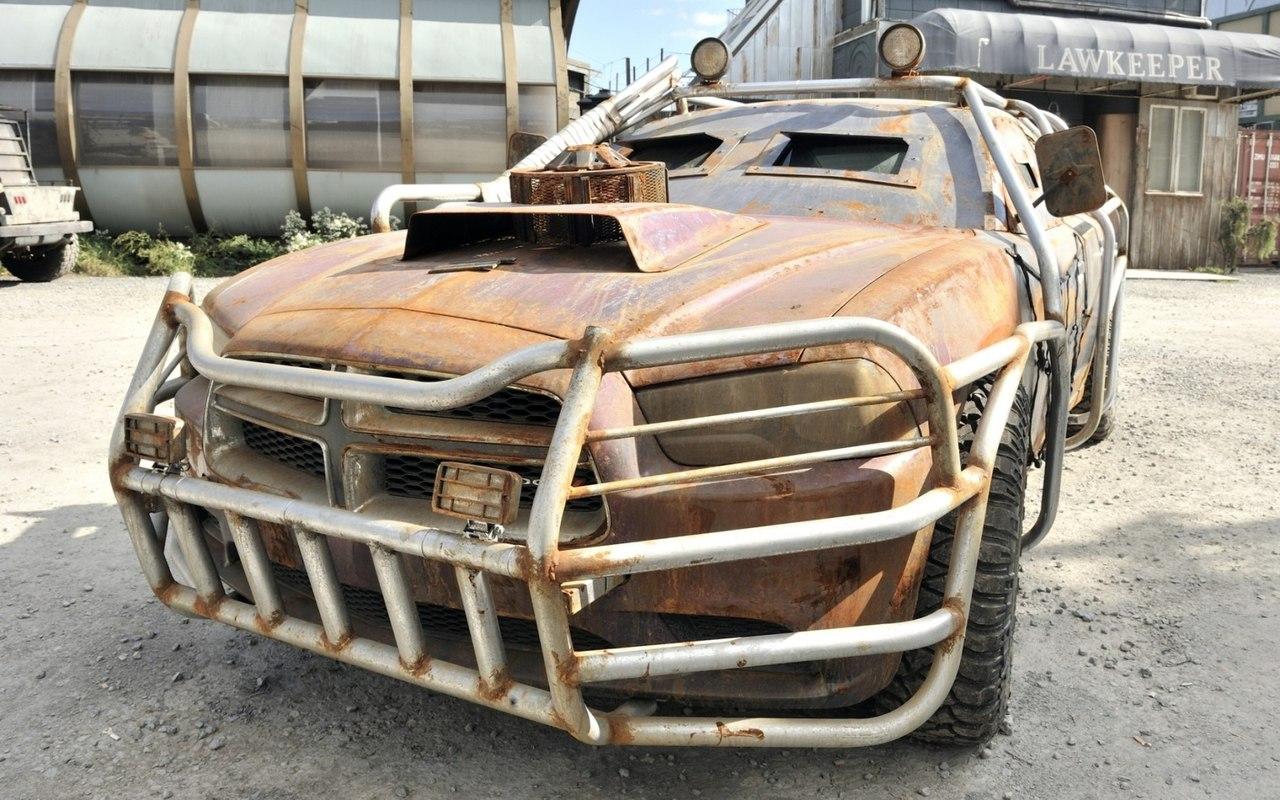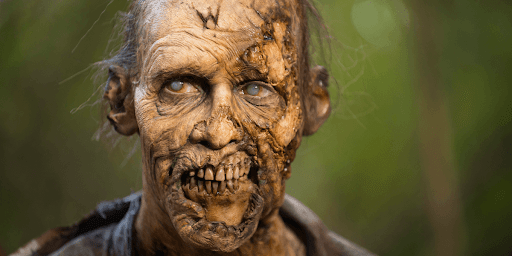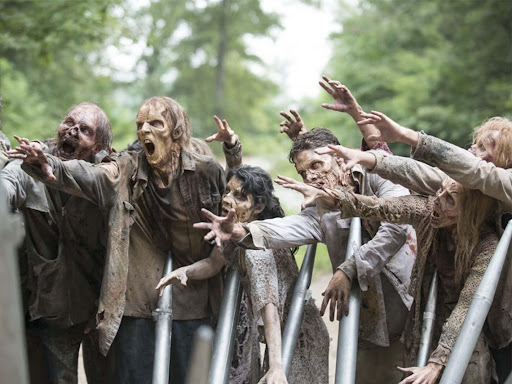You hear it often, and it seems like an undisputed truth: zombies are really into human brains. With various organs we can offer, the crenate organ appeals the most to them. But ever wonder why do zombies eat brains?
The answer is simple; these rotting beings aren’t all about brains. They will devour your flesh like they savor your brain.
Splitting the cranium or killing an alive human to make his brain pour out is much of a task for these rotting beings. While our torso, appendages, and limbs offer fresh and mouthwatering flesh at easy access. Plus, impaling a human cranium requires sufficient skill and power, which zombies lack.
Come to think of it, humans are quick and responsive in sensing the danger and escaping from it. And what seems like a few feet is a marathon for zombies. These rotting beings must run a lot to catch an alive human to fill their appetite. Call it a compromise. They have to eat what is readily and amply served to them, which is the human flesh and not the brain. The brain is the delicacy that every zombie thoroughly enjoys to the fullest.
But if zombies eat flesh more than brains, why do we only associate them with brains? Are they capable of expertly splitting our cranium apart? Most importantly, what fundamentally causes them to eat flesh and brains? Here we have discussed each of these questions and tried to affix an answer to each question. So, let’s delve into the topic.
What causes zombies to eat brains?
The obvious and most asked question is; what are the possible causes of the cannibalistic behavior of zombies? Funnily enough, it is their brain to blame. It is well-established that our brain controls, monitors, and regulates all our activities and movements. Whether it is our abnormal gait or unhealthy eating habits, all our responses are disseminated from our brains. And zombies resemble us in this one particular aspect.
Zombies do not have fully functional and optimized brains, but it suffices for enabling a few activities. Let’s understand how a zombie’s brain differs from ours. But first, briefly recall how human brains generate and control hunger. The human brain still holds unchartered aspects that scientists are yet to venture on. But we have clarity on some factors like specific control centers.
Our hunger is controlled by a part of the forebrain and associated with the limbic system- the hypothalamus. Generally speaking, our hypothalamus prompts several responses to acknowledge the growing grumbling in our stomachs. A hunger hormone is triggered in our gut, which reports the hypothalamus to generate the appropriate responses. Once this ‘hunger complaint’ is registered, hunger is established, and the human system is prompted to respond with satiety.
Simple. Well, the brains of zombies work differently from us. Let’s see how.
First, zombies have damaged, abnormally working, and only partially abled brains. Their entire brain isn’t functional; only a specific part of their brain operates, regulates, and monitors their activities. Unfortunately, the hunger control center’ is one part of the brain that continues churning responses. We still need to determine whether the entire hypothalamus functions well or is it just the hunger control center.
For now, let’s assume that they have a functional huger control center. However, the pertinent question is if they have the hunger control center, then why is their hunger highly unregulated?
We have a theory to propose. A fully functional hypothalamus enables optimal hunger control. Likewise, a damaged hypothalamus encourages abnormal hunger regulation. In the case of zombies, it is safe to say that their hypothalamus knows how to broil hunger response but cannot regulate it.
Therefore, unquenchable and continual devouring of flesh and brain.
Another aspect of this theory suggests that disrupting the sleep-wake cycle is instrumental in encouraging an unquenchable hunger. How? Let us explain. The human body repairs, heals, refreshes, digests, and disseminates while we sleep. No wonder nutritionists press on breakfast as our body distributes its nutritional reserve.
Contrarily, zombies do not sleep or repose at all. Their zero sleep-wake cycle hinders their body from entirely or even partially storing nutrition. Their brains are stuck in the constant day phase, requiring them to feed their high metabolism and refuel their energy. And therefore, you will find zombies running day and night amok in search of fresh flesh and brains.
Another part of their brain that suffers from damage is the pineal gland. This gland is predominantly involved in controlling sleep hormones. The absence of this gland instigates insomnia and the inability to digest food optimally. Instead, zombies burn all the food they consume and hunt for their next round of meals.
In short, the cannibalistic behavior of zombies is a mere consequence of the dysfunctional hypothalamus and pineal gland. With broken eat and sleep cycles, zombies shuffle around, squealing unintelligibly for more brains.
Do zombies eat anything other than brains?
Brains will always be the top priority for zombies. Why? Because our brains pack a lot of nutrition to satiate the hunger of these dead beings. Considering their craze for brains, it is easy o predict that our brains offer them ample energy to run wild for a few hours.
However, it is challenging to establish how long a single brainy meal would last. Considering the movements and activities zombies typically do, a single brain would suffice for a few couples of hours. Once a single meal depletes, zombies look for their next prey and the next round of dinner. Their hunt is continuous and undying; zombies walk or mill around all day. Also, their limited stagger hampers them from quickly reaching their prey, so they are on the move all day.
Despite their craving for the human brain, breaking the skull and extracting our brains seems like a far-fetched reality. This conjecture can be supported by two assumptions: a) Zombies lack the expertise and skill required for splitting our cranium open b) It is highly unlikely that zombies can tell human flesh apart from the human brain.
Zombies do not have enough power to break or even dent our cranium. So, they are left to compromise with the only flesh available to them. Moreover, they lack a sense of taste; they can’t extricate the ethereal taste of the brain from the crude taste of our flesh.
Apart from brains, human flesh may serve as a delicious meal. Let’s paint how flesh tops in preference.
The pains of hunger that zombies experience are far more robust and sharper than what humans casually experience. They cannot calm their pains with a few bites of snacks. They need an ample amount of food and need that quickly. They hunt all day but only eat some day long. Even in apocalyptic zombie situations, zombie’s hunger would outgrow the entire human population. No matter how far the human population swells, it will never gratify the perpetual zombie hunger. These zombies must fight, continually hunt, and mill daily to capture their prey.
Now, wonder if zombies only had a specific Ala Carta brain menu? Humans don’t carry their brains in their hands to offer to zombies. Brains are guarded inside our skulls. Zombies must hit humans brutally enough to make their brains pop out. Again, there are more likely scenarios. Hence, zombies rip any piece of flesh they can get their hands on to cure their pangs and fuel their energy. Whether it is a tightened flesh on our torso or our thin dermis, every sliver of meat aids their hunger.
If we generalize this cannibalistic behavior, it will lead us to one pertinent question; do zombies eat animal flesh? Animal flesh also packs sufficient nutrition, energy, and desirable satiation. If we compare human flesh with animal flesh, animal flesh sits atop human flesh regarding food and fuel.
Zombies do attack animals, but they aren’t their primary target. By nature, zombies are driven toward human flesh and develop a liking for their meat. But in unlikely scenarios, zombies would consume animal flesh to meet their appetite and save themselves from starvation. But this would behavior would be highly transient. Once their hunger is satisfied, they will move on to hunt humans. We cannot say what kind or group of animal zombies prefer; they probably eat any animal they can sense around them.
Humans eat plants, raw herbs, or anything to satisfy their burning hunger in extreme starvation. Considering zombies are ‘humans surviving in the reverse direction,’ would they do the same? This is where fanatics and theorists commit to a single opinion. No matter how severe starvation gets, zombies cannot eat plants or other vegan sources.
A popular belief hints that the only way to eradicate zombies is to drive them to mass starvation. Depriving them of human and animal prey would lead to their mass eradication (death in huge numbers) within days. If zombies were adaptable enough, plant sources would be their saving grace. But these beings die and die due to a lack of fresh flesh supply.
Where there is a shortage of reasoning, zombies’ brains are tweaked and refined for smelling, tasting, and sensing human flesh around them. However, somewhere in their brains, they know the difference between rotten, stale, and fresh flesh. Yes, perfuming yourself with a foul odor won’t benefit you much. The only escape route is staying miles away from these decaying beings and allowing them to die alone.

How long would a single brain meal last?
Human brains use most of the nutrition and calories of the human body, making it the organ with the highest nutritional value. The high nutritional value of our brains suffices the zombie for a few hours. In other words, zombies who consume brains the most are more aggressive and less hungry than those who compromise on other flesh forms. Strictly brain-consuming zombies would last longer in their search for next fresh prey.
And reach the next new brain sooner than the slower one. The fast and slow zombies can be categorized based on their diet- their brain consumption. Slow zombies can result from continual or prolonged consumption of other flesh forms. These zombies need more fueling and refueling of energy and thus stay behind in the race for fresh brains. Predictably, slower zombies would die much more readily and accessible than fast zombies.
Fast zombies can be the ones with high brain consumption. They recurrently feed their hunger with fresh brains and keep themselves charged all day. These zombies have enhanced attacking capabilities and are even assumed to climb over low fences. After every few hours, they run for the next search while deriving energy from their recent brain consumption.
If’ fresh brains’ aren’t available, zombies would resort to animal or human flesh. But that is not the scariest part; theories suggest that zombies can survive for 20 days without eating a single brain. That means an entire horde of zombies would rampage the area, searching for fresh brains. This search would be unlike any other inquiry- it would be disruptive, aggressive, uncontrollable, and stretched to every nook and corner.
Why is it that zombies prefer eating brains?
Zombies’ preference and likeness for human brains are well-established and well-documented. Other forms of the flesh are consumed in dire need or abrupt shortage of fresh brains. And this brings us to the pressing concern; why do they prefer brains over other forms of flesh?
Theorists and fanatics hypothesized several concepts to add relevance to this concern. The most valid and, quite potentially, the rationally accepted theory proposes something like this:
‘Zombies have highly dysfunctional and uniquely tweaked brains. Their brains are reset to adapt a liking to the extent of craving for human brains. It is plausible that zombies have a higher fondness for human brains about the fact they once were humans. It is easier for them to detect, sense, and gauge human behavior than animal behavior.
In reanimation, the zombie virus rewires its neural system and sets humans as its primary target. While the reason behind this anti-human wiring remains a myth, all we know is that the zombie apocalypse would be a targeted human eradication.
To run this mass eradication scheme, staggering zombies would require a continual and nutrition-dense food supply. Human brains serve as the ideal option. However, the zombie apocalypse won’t only be the survival-of-the-fittest for human civilization. The war would equally be waged on the zombie populace.
Once most of the human population escapes or is wiped off, zombies brawl against each other for every last prey. Where the duration of the zombie apocalypse can’t be protracted, it is predicted that zombies will wipe out the human population within 100 days. However, the survival of zombies after these 100 days marks a dent in popular theories. Where human civilizations would decimate to a few handfuls of survivors, the zombie population would suffer mass starvation followed by absolute destruction.’
Most zombie fanatics find this theory to resonate the most with their apocalyptic conjectures. Some also support another idea, which goes like this: ‘Zombies’ fondness for the human brain is due to the lack of masseter muscles and teeth. These decaying beings require something highly nutritious and easy to swallow.
Other human body muscles might require chewing or grounding, but the brain is squishy. Zombies can easily slurp down their brains to meet their nutritional needs and satisfy their hunger. Even if zombies hunt animals, they prefer brains because they require little to no chewing.’
Whether you favor the ‘reanimation’ theory or ‘mastication’ theory, it is established that zombies highly like brains and would hunt for them far and wide. And you don’t want to be the likely prey.
Before the zombie apocalypse befalls us, it is ideal that we start preparing for a looming catastrophe. Search for the places that can offer you shelter and protection from these bloodthirsty beings. Even if you choose to stay in your city, stock ample food supply and protection gear to ward zombies off. Ideally, move to an apartment with a grocery store nearby to rush for restocking. Moreover, learn a few combatting skills and always carry some killing tools when you move outside. These might help you in case you encounter a zombie.
Remember, zombie apocalypse is the extreme scenario of survival-of-the-fittest. Only those who stay alert and prepared will make it to the end. Experts predict there will be only 73 human survivors after the zombie apocalypse. Preparation would be the only difference between these fortunate 73 and the unfortunate reanimated or dead ones.

Conclusion
Circling back to the unrelentingly bothering question, why do zombies eat brains? They have a high preference for brains but enjoy flesh.
Fresh human brains are pretty rightly the delicacies for zombies. These staggering beings must struggle to split in our skulls and reach our brains to consume. However, the flesh can be easily separated from our bones and consumed.




